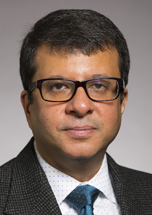
The PGA Tour Championship, dating back to 1916, is one of the four major championships that take place every year in men’s professional golf, and although it is an American organization, it is made up of a wide variety of players with different nationalities. The 2024 Tour included 29 “rookies,” ten of whom were foreign newcomers – international players starting out in the PGA – hailing from countries all over the world. Yet, since 1958 when the Tour switched from Match to Stroke Play, only 15 foreign players have taken home the gold.
It wouldn’t be professional sports without a hefty prize at stake, regardless of the champion’s nationality; the 2024 winner took home $3.33 million. However, to win everything – or place in the top ranks – requires golfers to both survive the rigors of the Tour and perform exceptionally well. For foreign athletes, winning requires more, namely overcoming new environments, cultures, tournaments, climates, and landscapes.
While golf is widely entertaining because of its competitiveness and precision, many unknown internal factors affect players’ performance and survival, specifically for foreign athletes. Granted, this rings true for any industry or profession, as foreign newcomer employees have much different experiences than domestic employees. Ultimately, understanding the challenges, networks, and experiences of these foreign players – and newcomers – matters.
Therefore, in “Migrants Networks and Survival in the Job: Evidence from Foreign Newcomers on the PGA Tour”, Raja Kali (University of Arkansas), David Pastoriza (HEC Montreal), Jean-Francois Plante (HEC Montreal), and Ekaterina Turkina (HEC Montreal) examine how migrant social networks matter in foreign players’ performance and survival in their inaugural season. The article was published earlier this year in the Journal of Sports Economics.
Are Foreign Newcomers on Par?
Migrant social networks connect players in the same tournament based on their nationality. Additionally, when players of the Tour are from the same country, they make up what is called a nationality cluster. For instance, as Justin Rose (No. Six), Tommy Fleetwood (No. 26), Jordan Smith (No. 39), and Aaron Rai (No. 42) of the 2024 Tour are of English nationality, they made up the England cluster and potentially a migrant social network. These migrant social networks play a vital role in a labor market characterized by high mobility of talent across many countries because foreign athletes, especially newcomers, still face disadvantages when playing domestic athletes.
For professional foreign newcomers on the Tour, these clusters and networks mitigate the effects of the liability of foreignness – unfamiliarity and discrimination when competing in a different country – and adverse performance consequences that may arise. – unfamiliarity and discrimination when competing in a different country – and adverse performance consequences. Ultimately, these social networks help foreign newcomers survive and thrive when playing against local players; the goal of Kali and his coauthors is to understand how. To answer this question, Kali first examines the benefits of a nationality-based network – the network that the predecessors of foreign newcomers have built.
First, nationality-based networks allow foreign newcomers to find a place for themselves amongst other professional athletes in a new country, environment, and tournament. As individuals tend to associate and bond based on similarities, professional athletes are better connected to other athletes by nationality, not past performance.
Second, they allow for a more reliable correlation between a player’s performance increasing throughout the season and opportunities for developing more advantageous social networks. In other words, when foreign newcomers compete well in the Tour, their social network will expand.
Last, they ease the difficult transition of relocating to the US, of experiences in an unfamiliar environment, and the hardships that stem from social isolation, cultural distance, and language barriers. This impact is even more important for success, as this “shock” may lead to harmful consequences for foreign newcomers.
Hard Reality of a Tour Life
The PGA Tour is made up of two tiers, both of which have separate tournaments and venues. The first-tier tour, the elite group of athletes, includes those of the highest ability, like Xander Schaufelle, who won the 2024 Championship. The second-tier tour includes the non-elite group of athletes, who are of lower ability or are newcomers, like Oliver Schniederjans, a former number one ranked amateur player.
Because of this difference in ability, the athletes of the two tiers have different experiences and impacts of competing in the Tour – and more foreign newcomers are placed within the second tier than the first. Likewise, nationality-based networks help mitigate the consequences for second-tier but not first-tier athletes, likely because they have already experienced higher performance and survival rates than second-tier players.
These networks operate as a conduit for information transmission. Foreign newcomers – usually second-tier players – experiencing foreignness liability can more easily access valuable information about the tournament they will compete in. For example, a professional Scottish golfer can inquire before competing about a PGA course’s design and conditions, like the depth of the roughs and speed of the greens, both of which he and other foreign newcomers might have to adapt to. Without this information, they would likely experience a more difficult competition than a domestic athlete.
The networks can also be a source of tangible and intangible support, providing resilience against adversity. Consider that a foreign newcomer from Spain enters the Tour. Within the Spain social cluster, the player can experience social connections that lead to more opportunities, referrals, best practices, or advice about pitfalls to avoid in the Tour.
Kali describes this mechanism as providing support for “the hard reality of a touring life – with many weeks on the road, loneliness is a frequent symptom on the PGA Tour, which may be particularly deleterious for foreigners who do not master English and are limited in their ability to socialize.” What’s more, foreigners do not receive the same support from the press or fans as local players, making them feel even more ostracized.
A World of Social Networks
While it might seem like a leap from the PGA Tour to your organization, the findings of this research demonstrate the benefit of these sorts of social networks. It’s no secret that organizations should hire managers with multicultural experiences to effectively manage culturally diverse teams, facilitate integration, and improve performance.
But what about firms that deal with overseas assignments of employees – the same sort of international mobility of talent seen in the PGA? How can those firms better connect new employees and expatriates to mentors from the same country? As Kali and his coauthors indicate, doing so may help firms increase levels of productivity and retention, social integration in the new location, successful onboarding, and general social support.
In life, opening ourselves up to foreign environments is extremely difficult and shocking, preventing some from taking that leap of faith. By relying on nationality-based social networks, however, foreign newcomers can ease the transition with emotional support, cultural guidance, information and resource accessibility, and encouragement. In doing so, they will also experience enriched understanding, personal growth, professional opportunities, communication skills, and a broader worldview and appreciation.
 Alyssa Riley is a second-year graduate student earning her master’s degree in News
Narrative Journalism. Attending the University of Arkansas as an undergraduate student,
she earned her bachelor’s degree in News Editorial Journalism while working in numerous
writing, editing and social media roles. In addition to writing for Walton Insights,
she has begun a sports media internship with Hogs Plus Content Network and freelances
for Celebrate! Arkansas Magazine. After earning her master's, Alyssa hopes to work
in the magazine industry, specifically covering arts and culture, entertainment and
lifestyle genres.
Alyssa Riley is a second-year graduate student earning her master’s degree in News
Narrative Journalism. Attending the University of Arkansas as an undergraduate student,
she earned her bachelor’s degree in News Editorial Journalism while working in numerous
writing, editing and social media roles. In addition to writing for Walton Insights,
she has begun a sports media internship with Hogs Plus Content Network and freelances
for Celebrate! Arkansas Magazine. After earning her master's, Alyssa hopes to work
in the magazine industry, specifically covering arts and culture, entertainment and
lifestyle genres.




